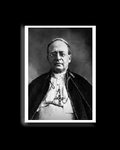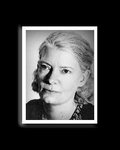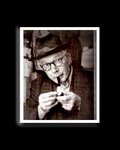Sunday, July 4, 2010
We've Moved!
On the 4th of July, we are proud to present our brand new web site, The Distributist Review. The Distributist Review will provide analysis of our contemporary social and economic world, with the addition of vintage essays from G.K. Chesterton, Hilaire Belloc, and the early Distributist League. The site’s primary focus is Distributism and its relationship to the world we live in. Whether discussing capital and labor, urban and rural reform, politics, or “what is wrong with the world,” we strive to deposit the proper perspective on the fundamentals needed for social and economic restoration, as our readers want to know what prescription we can offer for the building of a practical Distributist culture.
Our mission is to pave the way for common ground between diverse political backgrounds, working tirelessly to harmonize social justice and orthodoxy, and helping to build the framework necessary for the creation of a popular Distributist movement.
In addition, our web site will now include guest contributions, movie and book reviews, audio and video resources, downloadable materials, and a print/PDF feature for all of our articles.
Please join us, bookmark our site, and help us to spread the word.
Go to www.distributistreview.com/mag and do not forget to order “Jobs of Our Own” by Dr. Race Mathews by going to www.distributistreview.com/press.
Neither Left nor Right. Looking back and moving forward. The restoration is up to you.
Thursday, June 24, 2010
Schedule Change for Chesterton Conference
If you plan to attend this year's Chesterton conference, please be aware that changes have been made to the schedule. Joseph Pearce will now speak on Friday.
http://chesterton.org/2010conference.htm
Monday, June 21, 2010
The New Devereux
For some time the editors of The Distributist Review have been on a mission to move beyond the shores of Blogger. While this has been our happy home for almost six years, our principle objective to find a new design that could marry The Chesterbelloc Mandate and The Distributist Review is now mission accomplished. With this new site our readers will receive the best vintage material and current analysis of the Distributist model, and we are confident our template has the right spit and polish to attract new readership and bring attention to this very important journal.
What Can You Expect?
The Distributist Review's new home promises a fresh dynamic. While retaining its hard-hitting commentary and superb analysis, our site's attractive features will increase readership and re-energize the Distributist movement. We've added book and movie reviews, foreign language articles, guest contributions from academics and laymen in the trenches, social networking icons so you can post our articles on Facebook or Tweet them, podcasts, written interviews, and printing or PDF options (TBA).
An announcement with the new url for The Distributist Review will be made over the 4th of July weekend. We invite you to join us at our new home, add our new address to your websites, and tell your family and friends about us.
On a personal note, I wish to thank all our contributing editors over the years for giving so much of their time, effort, and heart. They truly outline sanity. They do not do this for thanks nor do they receive the compensation they deserve. What they do is not just for us, but for Christ the King! May God bless all of you. Your articles reflect how grace is a call to action.
Servire Deo regnare est!
Richard
PS: While some articles will be migrated to our new domain, this web site will remain available as an archive.
Thursday, May 20, 2010
Monday, May 17, 2010
From Dale Ahlquist
Chestertonians !!
In all of the American Chesterton Society’s good work, one of the most exciting things we have ever gotten involved in is helping to start a new high school. Chesterton Academy is just completing its second year of operations in St. Louis Park, Minnesota. We featured a cover story about it in Gilbert Magazine not long ago, but it has received other national press because of its uniquely integrated curriculum, its comprehensive approach to classical learning, its faith-based education, its affordable tuition and the fact that it is a grass roots effort. We are trying to fix what’s wrong with the world, and we’re doing more than sitting around and talking about it.
(For more information about Chesterton Academy, visit our website here: http://chestertonacademy.org/)
I am contacting you today because we have just received an amazing fund-raising opportunity. A Minneapolis entrepreneur named Andrew Redleaf has announced that he is offering the school a challenge grant of up to $75,000. That means that for every dollar we raise from now until June 15, 2010, he will match it, dollar-for-dollar, up to $75,000. This means we can raise $150,000 for the school. This gigantic for us because we are a modest operation that makes a little go a long ways.
There are several reasons why this is significant, but perhaps the most important one is that this school has impressed Mr. Redleaf, who is looking at this venture of ours as a total outsider. He is not Catholic (he was raised Jewish), and he has not studied Chesterton. But he likes what we’re doing. You can find the full story on Mr. Redleaf and his amazing offer to us here: http://chestertonacademy.org/news
We have less than a month to raise the money for this matching grant. I know that times are tough, but I am calling on you to help us in any way you can. Please make a tax-deductible contribution today. Any amount will be helpful.
You can donate here: http://chestertonacademy.org/support
We will be very grateful for your help.
Your servant,
Dale Ahlquist
President, American Chesterton Society
4117 Pebblebrook Circle
Minneapolis, MN 55437
Sunday, April 18, 2010
Aristotle and Aquinas, Bank Regulators
Okay, so after years of inaction, the SEC has finally taken the offensive. True, they went after a small deal, a mere billion in “designed to fail” CDO's on which Goldman Sachs made a paltry $15 million, an amount which, in the overall scheme of these frauds, doesn't even amount to a rounding error, as Gretchen Morgenson pointed out. Still, it's enough to damage the reputation of Goldman Sachs, perhaps fatally, and perhaps enough to re-establish the SEC as a regulatory force. However, there is a deep problem: what should the regulators be regulating?
We live in an age of regulation. But surprisingly, there are very few principles of regulation. As Karl Polyanyi said, “Laissez-faire was planed; planning was not.” Planning always seems to be something that always arises ad hoc, to address a particular situation, but hangs on and acquires a life (and a bureaucracy) of its own, even after the situation changes. The result is that we are simultaneously over-regulated and under-regulated; we have thousands of pages of regulations that deal with situations that don't require any, and no regulation in areas that need to be closely watched. The regs raise formidable barriers to competition, as the small businessman often finds that the cost and trouble of dealing with them is an insurmountable barrier to entering a given business. This leaves only the large players, for whom such regulation is a mere nuisance, a cost of doing business that brings a benefit of reduced competition. And since there are fewer competitors, they tend to be more politically powerful, and proceed to capture the very regulatory bodies that are intended to curb them. The government becomes, in effect, the protector of the oligarchs rather than their regulator.
The current case is a case in point. We often hear how “complex” these schemes are, but in fact this fraud was simplicity itself. Goldman Sachs allowed a certain hedge fund trader, John Paulson, to put together a group of mortgages that would be packaged into a CDO, a “collateralized debt obligation” which was sold to Goldman's investors. However, Paulson was also known to be shorting the mortgage market. Paulson deliberately assembled a package of loans whose underlying risk was much higher than the credit ratings indicated. Goldman Sachs then marketed Paulson's poison-pill CDO to other banks, pension funds, and individuals. But Paulson, knowing the true risk of the security, purchased CDSs on the package. A CDS (“credit default swap”) is an insurance policy on a security that pays off when the underlying security fails. But the term “underlying security” is a fiction; Mr. Paulson did not own the CDO he was insuring. There was no “underlying security.” It is like buying a fire insurance policy on your neighbor's house, and hoping it burns down.
Goldman Sachs didn't bother to tell its investors that the CDO was put together by someone who was betting that it would fail. Instead, they said in their prospectus that it was put together by somebody else. Why they bothered with this lie is a bit of a mystery, since nobody ever actually reads a prospectus.
The man at Goldman responsible for selling these securities, Fabrice Tourre, knew they were about to fail. In an e-mail to a colleague, he stated,
More and more leverage in the system. The whole building is about to collapse anytime now... Only potential survivor, the fabulous Fab[rice Tourre]... standing in the middle of all these complex, highly leveraged exotic trades he created without necessarily understanding all of the implications of those monstrosities!!!"
You can bet that wasn't in the prospectus. But if there is one thing that both Democrats and Republicans agreed about in the 90's, it was that these “monstrosities” didn't need to be regulated. The market for them was composed of sophisticated investors who were more than capable of evaluating the risks and taking the losses, should their be any, and the public need not trouble themselves about such things. Senator Phil Gramm led the Republican efforts to deregulate this market, joined by such Democratic stalwarts as Robert Rubin and Larry Summers, and President Clinton signed the bill with little fanfare in 1999. But as things turned out, when the highly leveraged bets brought down the whole economy, the risks were socialized, and the profits were privatized. The US Treasury became the hedge funds Ultimate Hedge.
So what should the regulators be doing? One could pass this off as mere fraud, which is already illegal, but that would miss the point. The practice of touting such complex instruments to customers while shorting them in your own portfolio is common enough. Indeed, the appetite for these CDO's was immense, but the number of solvent borrowers in the mortgage market is limited. To meet the demand, banks and mortgage companies pushed their loan officers to ignore underwriting standards and to make as many loans as possible, prudent or not. For example, in one CDO examined by Roger Lowenstein, on 43 percent of the underlying loans, the lender hadn't bothered to verify the borrower's employment and income. These were part of the famous “Liar Loans” and NINJA loans (“No-income, no job or assets.”)
So what can be done, apart from sending a bank regulator on every loan interview? For one thing, we could listen to Aristotle on this subject. Not too long ago, a Prominent Economist told me that Aristotle had nothing to teach us about modern finance. I beg to differ; Aristotle, and the Scholastics who adopted his approach to economics, were surprisingly sophisticated on these topics, while so many Prominent Economists are surprisingly naïve. Indeed, Aristotle left us a principle of commerce that serves very well as a principle of regulation. This principle is the distinction he makes between natural and unnatural exchange. Modern commentators, who make no distinctions, have viewed this as a mere primitive hostility to business; actually, it was a shrewd appreciation of commerce. For Aristotle, natural exchange was that which was necessary for the provisioning of the family (the true meaning of economics.) Unnatural exchange that which had only money as it object.
The former is “natural” because it limits itself; that later unnatural because is has no natural limits. For example, a man wishing to buy bread for his family will buy only as much as he needs; this is a natural exchange. But a man wishing only to make money in the bread biz may wish to buy up all the bread and corner the market so as to raise prices and make a fortune on others' necessities; this is an unnatural exchange. When applied to finance, a transaction is natural when it is when it is firmly and directly tied to the production of some actual product; it is unnatural the more abstract and derivative it becomes, and when its only object is to make money rather than profit from production. Thus, we may say that banks directly financing home purchases or construction are natural transactions, and less natural when they become “securitized,” bundled together and sold in packages to remote investors who will have no contact with the actual homes, banks, or borrowers. The situation becomes even more abstract when you speak of securitizing the securities (“CDO-Squared” or even “CDO-Cubed”) or with CDSs, which become pure speculative bets on the market. The more abstract the instrument, the more closely it should be scrutinized.
As things now stand, we have reversed Aristotle's order: the natural exchanges are highly regulated, while the unnatural ones are often unregulated. In more normal times, when you went to George Bailey to get a mortgage, he squinted at you real hard to see if you are the kind of person who will pay him back for 30 years. George needs little oversight to encourage him to be prudent, since he has the bank's capital and the depositors' money at risk. But if George merely intends to securitize the loan, then he merely glances at you to see if you are the kind of person who will pay for two weeks, because after that you are somebody else's problem. In the meantime, dear old George has made a bundle on excessive loan fees and commissions on the sale of the security. George has every reason to write every loan he can, even liar loans, because they all bring him a profit, and he hopes he can park the loss with someone else. And even if he can't, he knows that the Fed is there to provide him with any amount of “liquidity” he may require, and if he gets big enough, he can always call on the United States Treasury, since the consequences of his actions will be catastrophic; he is in a position to blackmail an entire nation, or even the entire world.
Applications of this principle will be fairly obvious, in most cases. Take the example of CDSs. As an insurance policy, it is surely a natural exchange, a real service that guards against real loss. But when people insure things they do not own, the exchange becomes unnatural and the CDS becomes a mere speculative bet on a given market, one that produces no social gains. The rule should be a rather simple one: “No harm, no foul.” If there is no loss suffered, there should be no claim paid. If you do not own the failing security, you cannot claim a loss on it. Consider that at its height, the notional value of the CDS market was $600 trillion, or eleven times the GDP of the entire planet. Likewise, MBSs and CDOs, should be subject to heavy scrutiny, and even more so when they are squared or cubed; the amount of the regulation is given by their distance from the “real” transaction to which they refer.
In the bad old days, before we became enlightened, we had to think things through for ourselves. Now we have farmed the job out to experts who claim to understand the complexities that their own “expertise” created. In those times, philosophers did not hesitate to address themselves to mundane subjects of commerce and kingship, and every theologian worth his stipend routinely addressed matters of state and business. It was considered part of their job. But the “experts” have, once again, botched things up; Fab Tourre failed to understand the monstrosities he created, although he did understand how to profit from them, at our expense; he was an expert in all the wrong things. It may be time to call again on the philosophers; the Prominent Economist may have to subject his thought to the theologian, the banker to the philosopher.
The SEC has finally moved, albeit somewhat after the fact. It may be merely a political ploy, a way for the Administration to put some pressure on the Republicans, who have vowed to stop any banking regulation, no matter what. The Administration will dribble out cases like this from now to election day, and will call some votes in the Senate that will be stopped short of action by the Republicans. They will force the Republicans to stop them from doing what they don't want to do, make real reforms. They can embarrass the Republicans, even in front of their Tea-Party supporters, while not actually having to take any action. Politically, it's a good deal, and may give them some leverage going into November.
But just in case anybody does want real reform, we might turn to those who have given the market real thought, thought that has survived 2,500 years of scrutiny. Bank regulation is a MEGO subject (“My Eyes Glaze Over”), and if you, loyal reader, have gotten this far in this essay, it is likely that you are a nerd or have mild Asberger's Syndrome; you may be the kind of person who would actually read a prospectus. But despite the lack of interest and understanding, we must have some public interest in these things, apart from the “experts” like Fabrice Tourre and John Paulson. We cannot do without a proper finance system. Between the planting and the harvest, there is a gap, and likewise between opening a production line and the sale of a product. This gap must be financed. But finance itself must be made to serve this gap, to bridge it for the common good. When it has no other point but to enrich the few at the expense of the many, then the real economy has no future, and if it has no future then neither do we, nor do our children. We could do worse than turning the system over to people who have read a little Aristotle and Aquinas.
Wednesday, April 14, 2010
Wednesday, April 15, 2009
Tuesday, March 10, 2009
Is There A Bellocian Response For Today's Economics Crisis?
Friday, February 20, 2009
The True Sources of Wealth
In light of the timely Call to Action posted at The Distributist Review yesterday, I'd like to suggest another practical means of helping establish distributism in the present time: creating wealth.
It's nearly universal for our politicians to tell us that we need to get back to creating wealth. This much is true; sadly, however, our politicians want to get back to creating wealth by getting people to borrow more money to buy more stuff, most of which was made in foreign countries by foreign workers, and most of which they couldn't afford even if they weren't going into still more debt in order to buy it.
Why does our age, alone among all, consider increased consumer debt and the increase in consumption that goes along with it to be "creating wealth"? Isn't this truly merely consuming wealth? And given that the vast majority of these consumer goods that we're purchasing with our borrowed stimulus funds are made in foreign factories by foreign workers, while our own citizens are occupied predominantly with serving each other (increasingly foreign-produced) food and selling each other incomprehensible financial documents (not to mention helping to import the foreign products that we're doing all this in order to buy), isn't this consumption of wealth without ever replacing it with anything?
Certainly, these foreigners (who are mostly perfectly decent people in their own right) are creating wealth, and we're paying them to do so. But what happens when they decide to start selling their new wealth to their own people? And even besides this, is it right for us to rely on the Chinese keeping their workers in borderline slavery in order to provide us with cheap goods, while we fritter away our immense national resources, both human and natural, voraciously consuming the wealth produced on other shores than ours?
At this point distributist readers will doubtlessly expect me to begin railing against industrialization and capitalism. But truly, this financial system isn't even really industrial capitalism (which can certainly be rightly railed against); it's something called finance capitalism, which in some ways is even worse. Industrial capitalism does, in fact, isolate all the means of production into the hands of the wealthy few, leaving the rest in near-slavery; however, at least the non-owning many can easily ascertain that they're being exploited by the owning few. Finance capitalism, on the other hand, ostensibly raises the wealth of the non-owners, and they acquire more and more material goods. This lulls the non-owners into total complacency, unaware that they and their nation are being stripped to the bone by the financiers, who are funding the shipment of the national wealth to foreign countries to be worked by foreign slaves.
Still, our benevolent leaders insist that this sort of activity is really creating wealth for our nation. But what is wealth, really? Surely it's not simply money, green paper or binary signatures on banks' hard drives? No; money is simply an agreed-upon standard for exchanging wealth, not wealth itself. Hillaire Belloc, in his seminal distributist work The Servile State, defined wealth as "matter which has been consciously and intelligently transformed from a condition in which it is less to a condition in which it is more serviceable to a human need." In other words, wealth is anything that's been worked on to make it more useful; so, for example, lumber, which are trees made into a more useful form for building, is wealth. Wealth is created by production, which is the "special, conscious, and intelligent transformation of his environment which is peculiar to the peculiar intelligence and creative faculty of man." The means of production, then, are simply the tools, such as saws and hammers, and resources, such as land and timber, necessary to produce wealth.
Certainly, the non-owning worker has more stuff than ever before; he has more things which have been made more useful for human needs, and consequently he is in possession of more wealth. However, he still does not own the means of production, the way in which wealth is produced. Under industrial capitalism, for a very long time, the non-owning worker was confined in poverty and squalor, and distributists have always identified this as truly evil. Many capitalists have hailed the arrival of finance capitalism as the end of that era, in which even the lowly non-owning workers are awash in unprecedented amounts of wealth. Doesn't this, truly, eliminate the objections of distributists to the capitalist economy? The workers, after all, are well cared for.
However, while distributism has always decried the physical exploitation of the worker, it has first and foremost decried his economic exploitation. Distributists object strongly to a characteristic common to both industrial and finance capitalism, one which remains no matter how stuffed with Chinese-made garbage the non-owning worker's heavily-mortgaged house might become: the fact that the vast majority of society are non-owning workers, with only a very few owners of productive property. In other words, while workers in the capitalist world often now have wealth, they still have no means of producing wealth, and that makes all the difference.
As Belloc observed, "[w]ithout wealth man cannot exist." Without the constant transformation of natural resources to a form more useful for man's needs, man will die. And so it follows that "to control the production of wealth is to control human life itself." But in our society, the means of producing wealth are owned by only a very few, and even those few have moved most of those means into the custody and control of foreign producers. Which means, of course, that the vast majority of our society, who are non-owning workers, are really and truly controlled by those few owners and their foreign counterparts. Thus, the state is, in a very real sense, servile, as Belloc warned. (As an aside, it is also servile in a way that Belloc never predicted: not only are the citizens of the state servile to the owning few, but the state as a whole is servile to the other nations which produce the wealth which it consumes.) As Leo XIII observed, two decades before The Servile State flowed from Belloc's pen, ownership by only a few in this way has "laid a yoke almost of slavery on the unnumbered masses of non-owning workers." (Leo XIII, Rerum Novarum.)
That is what distributists despise most about our current system: that it makes the vast majority of us near-slaves of the owning few. Furthermore, it makes the state as a whole incapable of producing what it needs itself; it must instead rely on other states to produce it, which is what has led to many of our economic problems today. Distributism, on the other hand, seeks to establish the distributist state, in which, as Belloc said, so great a number of the citizens are owners that the society as a whole takes on the character of owners, rather than of non-owning workers. Distributism seeks the greater distribution of productive property, the means of producing wealth. That is the first and primary economic goal of the system.
What property is productive? There are almost limitless correct answers to that question, but fundamentally wealth is produced from four forms of such property: the fields, the forests, the factories, and the mines. By fields we mean those pieces of land that are used for the all-important necessity of raising food, both farmland and pasture. By forests we mean those pieces of land that are covered with trees and wild growth, from which can be harvested timber, furs, and innumerable other natural resources. By factories we mean those pieces of land, including the improvements thereon, that take the products from the other three types of productive property and transform them into more useful forms, including the tools necessary to do so; it covers everything from a corner shoemaker's shop to an automaking factory. Finally, by mines we mean those parts of the land that are dedicated to the extraction of mineral resources to be used as such, such as gold, silver, iron, and copper mines.
Notice what is not included in this list. Restaurants; real estate brokers; attorneys (my own profession); stock traders; merchants; shopping malls; supermarkets. All of these professions are necessary (even if some ought to be made much smaller) and good within their proper spheres; but none of them are productive of wealth, and thus all of them are secondary to those which are. Even in a distributist society there will be non-owners who perform certain necessary tasks; however, the vast majority of citizens will be owners of wealth-producing property.
In those four places are the creation of wealth, not Wall Street, and certainly not the Washington mall. None of the proposed government projects to help expand our imploding economy involve creating wealth; they just involve the non-productive consumption of it, which we've been doing for far too long already. So we'll just keep consuming the wealth created by others until either they realize that they don't need us anymore (since they're already producing all the wealth themselves), or we realize that we're almost slaves and rise up to fix the problem ourselves.
But to return to the stated purpose of this article, how can the distributist help establish the distributive state right now, even within the bowels of finance capitalism? It's really quite simple: begin producing wealth. Even if one is in a non-productive profession within our currently terminal economy (as I am), and even if one has no financially feasible means of escaping that situation, one can produce wealth, even if in only a modest way.
If the distributist has a productive hobby, let him practice it until it becomes a second profession. I know a gentleman (not a distributist, sadly) who's an engineer by trade, but who has a great love of woodworking, and produces many things of great beauty while practicing that hobby. In so doing, he's established a small factory, one of the four great means of production; he is really producing wealth, a distributist thing for him to do, though his economic principles vary.
Personally, I am an attorney, one of those that Dmitry Orlov called "mere embroidery on the fabric of an affluent society" (Post-Soviet Lessons for a Post-American Century (Part Two of Three)). While this overstates the point, it does identify the truth that this profession is not productive of wealth in any direct way. However, that fact does not mean that I, as a distributist, cannot do my part in creating a distributist state. While I'm quite halting with my woodwork, I deeply enjoy gardening, though I'm very inexperienced. So I'm reading up on natural and sustainable gardening, and I'm practicing as best as I can. While I don't have much land, I'm using what little I have to produce some wealth; that is what God made it for, after all. It is hard to imagine someone with no interest in any productive craft; let the distributist select one and practice it, and get to work on the all-important economic task of producing things of value. It may be countercultural, but it's also the only way our society can ever recover.
Wealth is wonderful; but he who produces the wealth controls the world. Let us begin to more widely distribute productive property according to our principles, and let us do so by beginning with ourselves.
Praise be to Christ the King!
Note: This is published under the Creative Commons Attribution-Share Alike 3.0 United States License.















